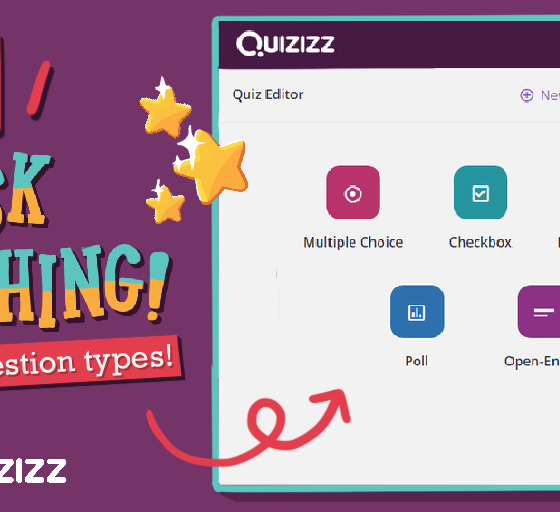Business
Bill Gates: AI will supercharge medical innovations

Microsoft’s co-founder is confident about the future, the pace of innovation and how AI can help us.
Bill Gates says that 2023 will always be special because his first grandchild was conceived in the year. The year 2023 was also the first time artificial Intelligence became mainstream. This was a result of the arrival of ChatGPT. Gates was inspired to think about the positive impact AI will have on his granddaughter’s life.
Gates, the co-founder and leader of Microsoft for decades, is no stranger to technological revolutions. Gates sees the year 2024 as being a landmark for artificial Intelligence. The technology will be especially important for global health, where the Gates Foundation has been working for decades.
Gates, in a blog post on his GatesNote website last week, wrote: “We have a much better idea of the types of jobs AI can do for itself and those it will copilot. It’s now clearer than ever that AI can be used to improve access to education, mental healthcare, and other areas. It’s my motivation to ensure that this technology does not contribute to the terrible inequities around the globe.
Table of Contents
The Year of AI
The year has been a great one for AI and generative AI. Gen AI is a step further than other AI methods. It can generate new materials such as images, text, speech, or video based on the patterns that it recognizes.
OpenAI’s ChatGPT launched in 2022 and introduced Gen AI, though smart home controls and AI powered virtual assistants like Alexa were already a part of popular culture and homes.
ChatGPT is the leader in a slew of AI-generated tools that have been released in the past year. It allows anyone to generate information or images using AI. These tools have been trained with huge amounts of data, allowing them to generate original responses to our questions — with varying levels of success. OpenAI’s chief executive, Sam Altman, stated in November that more than 100 million people are using ChatGPT every week. Microsoft is an important investor in OpenAI.
Microsoft is not the only company that has territory. Google, for example, updated its Bard AI bot in early December with a new AI called Gemini, which provides enhanced text-based chat capabilities. The tech companies continue to integrate Gen AI capabilities into all types of programs and devices, including search engines and smartphones.
According to GlobalData, in 2023, investors invested nearly 10 billion dollars into gen AI startups. This is more than twice the $4.4 billion invested in the previous year.
Many users remain cautious, even though Gen AI is gaining in popularity. Many users are concerned that AI will provide inaccurate information, in addition to the concern it could replace humans. Dictionary.com chose the AI term “hallucinate” to describe what happens when AI provides false information as its Word of the Year.
Gates believes that mainstream AI integration is imminent.
He wrote: “If I were to predict, I’d say that in high-income nations like the United States, we are between 18-24 months from AI being used by the majority of the population.”
He also sees the year 2024 as an important turning point.
What Gates thinks about the AI road ahead
Gates, who stepped down from his position as Microsoft CEO in the year 2000, has devoted himself to philanthropy. He founded with his former wife, the Bill & Melinda Gates Foundation. Gates believes that AI will be most useful in 2024 in areas related to the Foundation’s global health work.
Fight antibiotic resistance: He cites an AI-powered tool that is being developed at the Aurum Institute, Ghana. This tool helps health workers to prescribe antibiotics while preventing antimicrobial-resistant pathogens from learning how to overcome antibiotic defences. The tool will comb through the information available about antimicrobial resistance and suggest the most appropriate drug plan for each patient.
High-risk pregnancy help: A woman dies in childbirth every two minutes, Gates says. Gates is hopeful that AI will help combat this shocking statistic. AI-powered ultrasounds are a way to identify pregnancy risks. The Gates Foundation is funding this process. AI researchers from ARMMAN in India are also working on a large-language model – a technology that ChatGPT and other AI chatbots use – that can assist health workers with high-risk pregnancies.
HIV Risk Assessment: Many patients are uncomfortable talking about their sexual histories with a doctor, yet this information is vital to assessing the risk of diseases such as HIV. Gates is enthusiastic about a South African Chatbot named Your choice that was developed by Sophie Pascoe at Wits Health Consortium. The chatbot is a non-judgmental advisor who can offer advice around the clock, particularly for vulnerable populations.
Access to medical records quickly: While many people in wealthy countries have easy access to their medical records, Gates notes that in other countries, there are still many who do not have documented medical histories. It can be a problem for their treatment, as doctors will need to know their allergies, previous health issues and other information. A Pakistani team has developed a mobile app with voice recognition that can help. It asks a series of questions and then fills out the patient’s record.
Global health advancements
Gates sees AI as a tool to help in education. He calls AI tools “mindblowing” because they are tailored for individual learners and that they will only “get better.” Gates is excited by the ability to localize technology for students from different cultures and countries.
Gates is not only thinking about AI. He is concerned about climate change and says he has been “blown away” by the passion of young climate activists. He hopes that more investments will be made in 2024 to help those most affected by climate change.
He even gets into the nuclear energy debate. Gates says that while high-profile catastrophes like Chornobyl and Three Mile Island in the late 1970s have brought the risks to the forefront, in the last year, he has seen a shift in acceptance. Gates believes that the formerly feared energy giant is necessary to meet global energy needs and eliminate carbon emissions.
From skeptic to enthusiast
A New York Times article in early December stated that Gates had been “long sceptical” about what AI could achieve. In August 2022, he was convinced by a demonstration of OpenAI GPT-4, a large language model that underlies ChatGPT. This convinced Gates of the concept, and he encouraged Microsoft to “move aggressively” in order to capitalize on generative artificial Intelligence.
Gates left Microsoft’s board in 2020, but he is still an advisor to Satya Nadella, the CEO. Microsoft is a major player in the AI field. The company has invested heavily in OpenAI, which created ChatGPT. Microsoft has been integrating the technology into its online services, including Bing’s search engine.
Microsoft also reimagined Windows 11 by adding Microsoft Copilot, which makes AI assistance available at all times on the Windows 11 taskbar. Microsoft Vice President Yusuf Mehdi says it is the most significant update of the operating system to date. It works on multiple apps as well as mobile phones.
Even Gates struggles with
Gates’ letter for the year compares AI’s rise to the rise of email, the internet and search engines. He notes that not long ago, these technologies were unknown, but now they’re part of everyday life. Gates believes that AI will undergo the same type of change.
He admits it will not be easy and gives an example of his own.
Gates says, “I thought that I would use AI for the Foundation’s strategy reviews this year. This requires me to read hundreds of pages of material which an AI could accurately summarise for me.”
But it didn’t actually happen.
He writes, “Old habits can be hard to break. I prepared for [the reviews] in the same manner as I always have.”
CNET uses an AI engine for some of its stories. See our AI policy for more information.

















